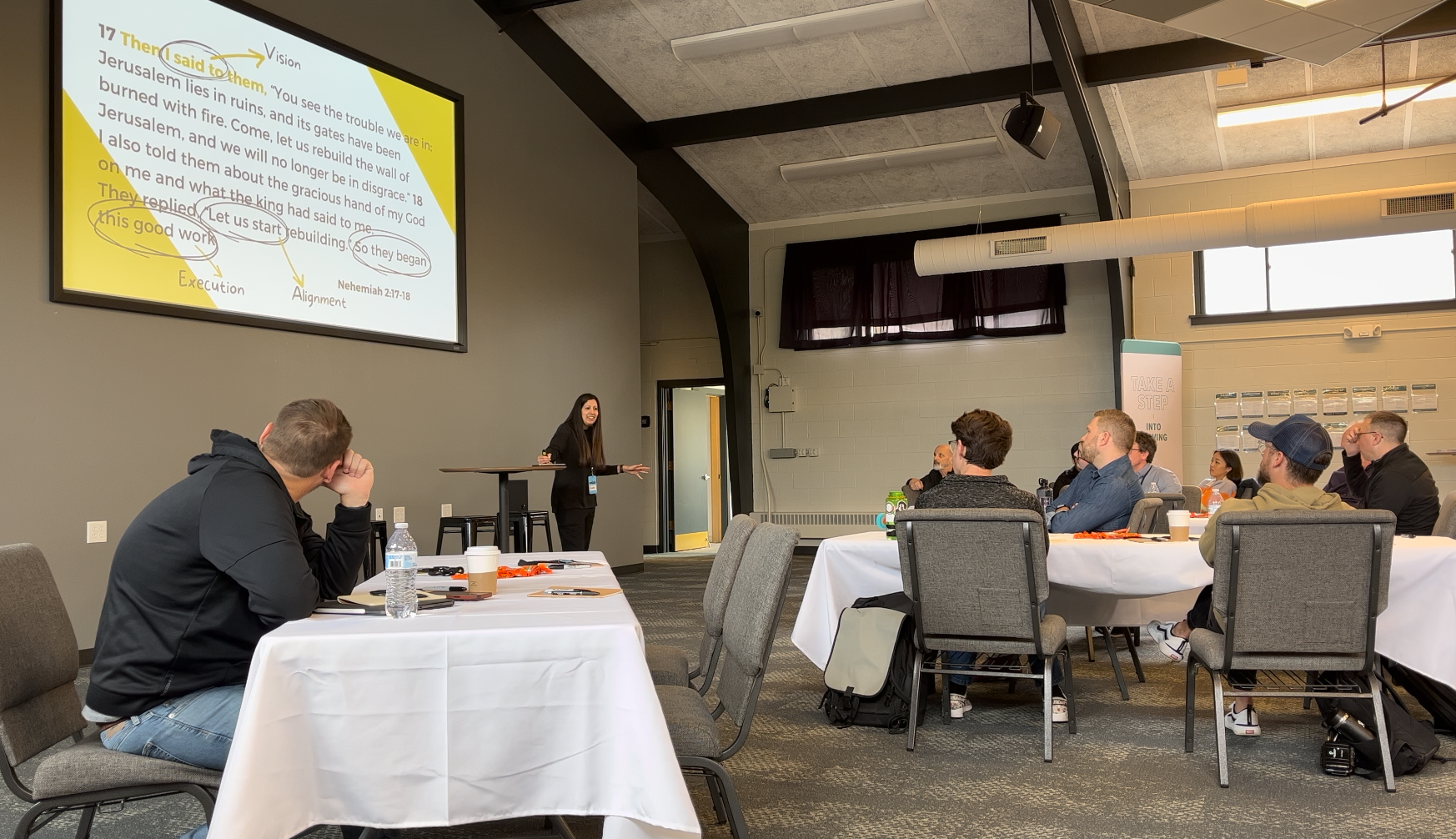How To Develop Emerging Leaders
Does your church staff have emerging leaders? We can help you train them!
Recent reports identify that several employers are experiencing challenges concerning the development of their current and future leaders. But why?
When it comes to leadership development, organizations lack the time and capacity to develop their emerging leaders. Effective leadership development doesn’t happen by throwing leadership books or online courses at a new manager. Though well-intentioned and somewhat helpful, these resources are only supplements to professional leadership coaching.
The O.C. Tanner Institute 2023 Global Culture Report and the Center of Creative Leadership reported: 81% of people managed by a TRAINED LEADER said they were more engaged in their jobs. 60% of first-time managers say they NEVER received any training when transitioned into their first leadership role, and 50% of managers are rated INEFFECTIVE. These statistics help us understand why 66% of organizations said they would take action to develop their current and future leaders in the next six months.
We want to help you take action in developing your leaders today!
Who Are Emerging Leaders?
Research done by Zippa, after surveying 30 million profiles, reported the following ages represented by employees in leadership roles: 40+ years of age (71%), 30-40 years of age (23%), and 20-30 years of age (6%). Therefore, we can conclude that as Boomers retire, GenX (71%) is stepping into senior-level leadership roles, while Millennials (23%) and some GenZ (6%) are getting the opportunity to move into mid-level leadership roles for the first time. In fact, according to The Unstuck Group’s 2023 Staffing Report, Millennials are the most represented on staff teams. And while GenZ is the most underrepresented on church staff teams, larger churches are employing three times as many young adults as smaller churches. Additionally, 33% of employees spend 1-2 years in their leadership roles, while 26% stay for less than a year, which means your organization needs an ongoing leadership development process.
What does this mean for your church?
If you have employees stepping into leadership roles and managing teams for the first time, they are your emerging leaders.
For example, an emerging or upcoming leader is someone whose primary responsibilities have shifted from doing the work to leading the team. Organizations are finding that while an individual may have exemplified leadership characteristics to warrant a promotion, their ability to lead out of those leadership characteristics consistently may be lacking. Consistent leadership is crucial because it builds healthy and trusted organizations and teams. Without the proper training and coaching to help new leaders hone or refine their leadership skills daily, their leadership will be inconsistent and erratic.
We don’t want your leaders to fall among the 50% of managers rated as ineffective. That’s not healthy for the individual, the team, or the organization as a whole. Therefore, we consider emerging leaders, regardless of their age or stage of life, as someone who has shifted from primary “doer” to primary leader.
Why Are Emerging Leaders So Important?
The development of emerging leaders is crucial to the world and the various positions they will fill within organizations like yours. As corporations research emerging leaders, they’re discovering that many need to develop emotional intelligence. Hard skills are one thing, but the soft skills associated with self-awareness, self-management, social awareness, and relationship management must be nurtured in emerging leaders by a guide—a mentor or coach—who leads through emotional intelligence consistently and who also knows how to teach others to cultivate those same skills.
Another thing is true about emerging leaders: they desire more intentionality concerning their personal and professional development. Organizations should be ecstatic because it shows that emerging leaders are hungry to learn and grow! Therefore, concentrated development and coaching will help accelerate their potential, ensuring they can succeed in their life and work while ensuring that your organization can continue purposeful work and ministry in your communities.
Furthermore, when organizations focus on the potential of their people through development and coaching, it provides their employees with a deeper sense of purpose and engagement, resulting in more job satisfaction and work-life balance. Additionally, development and coaching also enable organizations to prepare their employees for job advancement. Whether advancement occurs by someone leaving or an organization discovers they need to create additional roles, hiring from within allows for more stability concerning culture fit and financial stewardship. Lastly, development and coaching also prevent burnout because organizations have done the work ahead of time to train, develop, and equip the next person for a leadership position.
Your emerging leaders are next in line to lead.
We want to help you prepare them to step into their calling with skill, character, and confidence.
How The Creative Level Can Help
Nicole Lucas, the Founder and CEO of The Creative Level, has spent over 15 years serving in creative ministry—first as a volunteer and then as a creative pastor—leading the same department she once volunteered for. Nicole developed her leadership skills by earning a Bachelor's of Science in Leadership and simultaneously serving and leading within the church. Nicole understands your context. She can speak the language of senior leadership and the language of the people serving on your teams.

